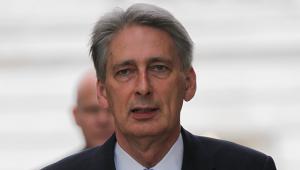The decision by the Bank’s Monetary Policy Committee yesterday also included a further £70bn round of quantitative easing in response to the weaker growth outlook.
The Bank’s Monetary Policy Committee today said that following the vote to leave the European Union, the value of the pound had fallen and the outlook for growth in the short to medium term has weakened markedly.
This was likely to increase inflation, with the consumer prices index measure likely to rise above the 2% target in the medium term.
As well as the 25 basis point cut from 0.5%, the first since 2009, the actions also include a new initiative, called a term funding scheme, which will provide as much as £100bn in additional lending to banks so they can pass on the cut in the base rate and in turn boost demand in the economy.
“Given the extent of the likely weakness in demand relative to supply, the MPC judges it appropriate to provide additional stimulus to the economy, thereby reducing the amount of spare capacity at the cost of a temporary period of above-target inflation,” the BoE said in a statement. “Not only will such action help to eliminate the degree of spare capacity over time, but because a persistent shortfall in aggregate demand would pull down on inflation in the medium term, it should also ensure that inflation does not fall back below the target beyond the forecast horizon.”
The £70bn round of quantitative easing is made up of £60bn of government bonds and, for the first time, £10bn of purchases from UK corporates. These will be financed by the issuance of central bank reserves.
Responding to the moves, Scott Corfe, the director of the Centre for Economics and Business Research, said monetary policy loosening was generally welcome and should support business investment and export-driven growth during challenging economic times. “Consumers will feel the pinch though, as a persistently weaker pound and higher inflation for imported goods drive up the cost of living,” he said. “Declining saving and annuity rates will also hit many households. Be under no doubt that this loosening has lots of winners and losers.”
However, even with this stimulus, CEBR has forecast a slowing in economic growth from around 1.5% this year to less than 0.5% in 2017 and a recession will be difficult to avoid.
Waiting until the Autumn Statement to make changes to fiscal policy – as chancellor Philip Hammond has said – could make recession inevitable, he added.
“What is desperately needed is a rethink of fiscal policy – boosting government spending and cutting taxation. Big announcements on infrastructure (dealing with the ongoing fiasco over aviation capacity), housing and taxation (such as more cuts in corporation tax) could do wonders to assure the public and overseas investors that everything is being done to boost economic growth.”
Alfie Stirling, IPPR research fellow in economic policy, also reiterated the need for fiscal action.
“With interest rates already so close to zero even before today’s cut, we have now all but reached the limits of what the Bank of England can do with standard monetary policy,” he said. “That is a dangerous position for decision makers to be in. Today’s cut in interest rates, even when combined with further QE, will not be enough to provide the full support the economy needs – and both come at the price of more private debt and more inequality.”
Hammond must therefore work with the Bank to make good on his reset pledge, Stirling stated. “The Treasury must use further investment spending as a preventative measure, like interest rates, to keep the economy moving.”




















